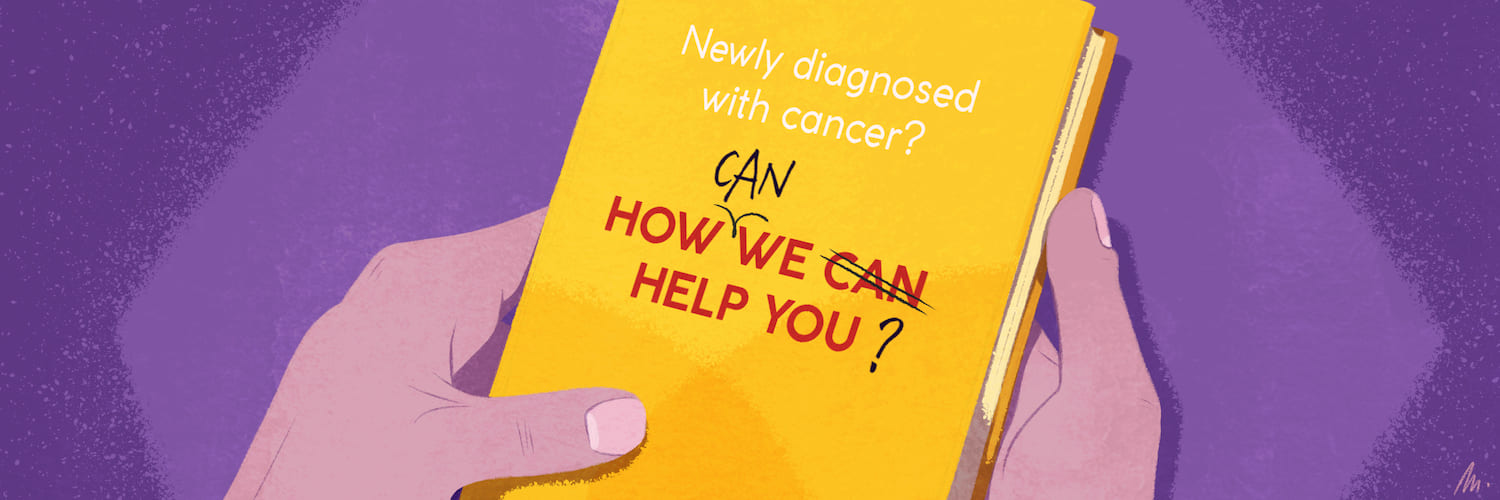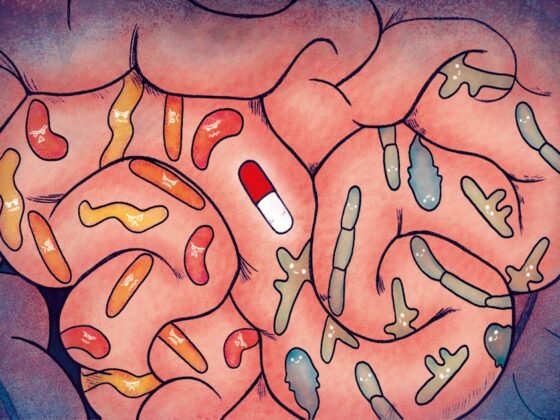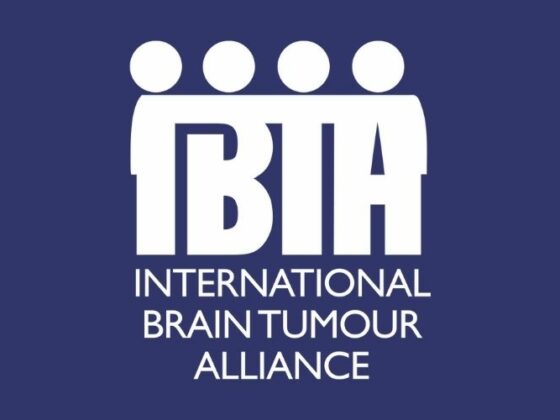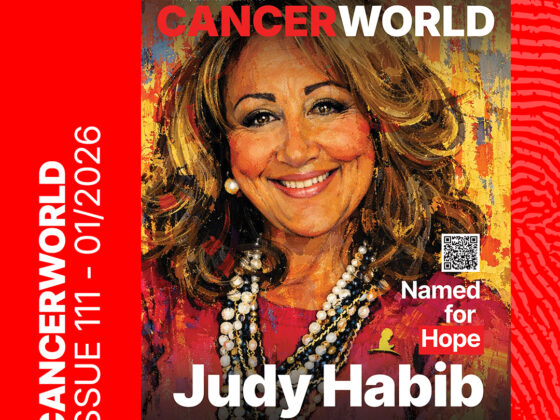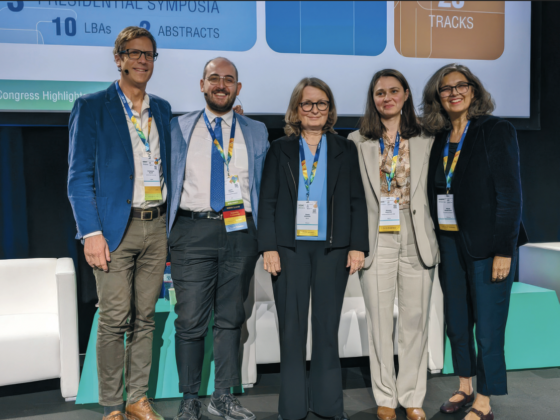Two weeks after receiving a brain tumour diagnosis, Martin was copied into an email from one of his healthcare team telling his GP that Martin was “understandably devastated by his diagnosis”. The words came as a shock.
“My healthcare team has been brilliant, but what they said wasn’t how I felt at all,” says Martin. “We talked it through later, and I explained to them that they got it wrong: I’m not devastated. Perhaps further on, but not now. This is a time for me of connection and feeling, and though my moods may vary, I am more alive than ever. What actually devastates me at the moment is not my diagnosis, but the burdens of debt and anxiety that many people are facing, the sense of loss of future that the young are buckling under.”
No two people react the same to a diagnosis of serious illness, and its subsequent treatment. Some may be ‘devastated’ and some will not. Some may need emotional and social support, others won’t. The needs of those that require support will vary widely. The point that Martin and many other patients have made over many decades is that the support needs to understand individuals, their personalities, priorities and circumstances. One size of sympathy doesn’t fit all.
Is it possible for health services, primarily geared to saving lives, to rise to that challenge? The subject was raised at the European Cancer Summit, organised by the European Cancer Organisation in November 2021. In a session on patient issues, Martin Inderbitzin a neuroscientist from Switzerland, said that healthcare systems were understandably data-driven, whereas patients are emotion-driven. This presents a significant problem.
“It has to be recognised that there is an illness beyond the illness,” he said. “It’s not only in the cells – it’s in the job, family issues, finances, body image problems and body functionality, fertility, social problems, emotional coping, mental health and survivorship.”
Inderbitzin, who has himself been treated for pancreatic cancer, said that this “illness beyond the illness” in all its infinite variety cannot be addressed in a hospital setting. Within health services, he said, there is always a tendency to categorise: people are defined as ‘patients’ and their anxieties, pains and functional difficulties are addressed under the heading ‘quality of life’, as if they are somehow separate from the worries and burdens that are part of everyday life. Their ‘patient’ selves are seen as less multidimensional than ‘normal’ people, and their needs more homogenous and simpler. The culture, he feels, is wrong.
Research backs up his worries about the shortcomings of health services in meeting emotional needs. Studies have indicated that 30‒35% of cancer patients are affected by some kind of psychiatric or neuropsychiatric disorder. A survey of 4,000 cancer patients by All.Can, a non-profit organisation working to improve the efficiency of cancer care by focusing on patient concerns, found that 69% said they needed psychological support during or after their treatment, but 34% of those said it was not available.
For Inderbitzin, who has set up his own website where patients can support others by posting their own stories, the answer lies outside hospitals – in innovative and entrepreneurial projects which recognise that mindset and emotional needs are key to good outcomes in cancer.
“You don’t have to tell people that something is wrong and they have to go to see a shrink. You have to tell them, look, it’s a hard situation and you can change the story you have… We don’t have to reinvent the wheel. Digital solutions and Covid helped a lot of people to go online, so we can use that momentum to design new ideas.”
Few would disagree with his assessment that addressing individual emotional needs is key. But what about his assertion that health systems are incapable of succeeding in this?
Kathy Oliver, a Co-Chair of the European Cancer Organisation’s Patient Advisory Committee, says that identifying and addressing psychosocial needs should be part of all multidisciplinary care – but it requires robust systems to be in place.
“You need systems that recognise unmet need, and tailor support to the individual and their caregivers. That doesn’t always happen”
“There can be a whole maelstrom of psychological issues for the patient, the caregiver, the whole family,” says Oliver, one of the founders of the International Brain Tumour Alliance. “I think that you need to have systems in place that recognise unmet need, and tailor support very much to the individual and their caregivers. In reality, it doesn’t always happen.”
From the point of diagnosis
Matthew Loscalzo, a Professor of Population Sciences at the City of Hope National Medical Center (Duarte, California) and a former President of the American Psychosocial Oncology Society, is a passionate advocate for structures that make it happen – within a hospital setting. His solution is ‘biopsychosocial’ screening, from the point of diagnosis onwards.
The biopsychosocial model was first put forward in the 1970s, centred on the assumption that, to properly address a person’s medical condition, psychological and social factors need to be considered alongside the biology. Screening people diagnosed with cancer using this model not only improves lives and outcomes but also brings savings to health systems, believes Loscalzo. It directly counteracts some of the anti-individualist gravitational forces that can all too easily come into play in health systems.
“Patients are our partners. They want to tell us what they need. We should not be guessing”
“Screening is about identifying from day one what people care about – what moves them and what motivates them, what partnerships we can form with them,” he says. “And when screening is focused on the things that patients really care about, it lifts them up and motivates them to begin the problem solving process, the mindset process of ‘who am I going to be in this experience?’ rather than what I’m told to be in this experience… Patients are our partners. They want to tell us what they need. We should not be guessing.”
Loscalzo and colleagues have developed an automated touch-screen process called SupportScreen, which identifies and triages biopsychosocial needs. Around 50 questions address the most common physical, practical, social, psychological, nutritional, rehabilitation and spiritual problems encountered by patients with cancer. Such screening tools, he says – and there are others available – need to be used from the point of diagnosis onwards with all cancer patients.
“Very essential questions about who our patients are need to be asked from day one,” he says. “The most obvious questions that are almost always overlooked are about fertility, finances and the impact on their future dreams, plans and aspirations. That process of healing needs to start on day one. As an institution, screening tells you who needs what. How many staff are needed? What kind of treatments cause what kinds of problems? But ultimately when you screen there’s a clear message: I’m listening to you. It’s a message that something else needs to be done.”
Crucial to this type of screening – and here Loscalzo overlaps considerably with Inderbitzin’s credo – is the assumption that needs are infinitely varied. Loscalzo points to statistics gathered at City of Hope-National Medical Center clearly showing that different life stages and situations bring different priorities.
Also like Inderbitzin, he believes services need to address the fact that people enter the new world of cancer with existing problems. These cannot be ignored simply because they are not directly related to the cancer.
“If you screen and don’t do anything, it’s not really useful. There’s got to be something at the end of that or else you’re just getting data”
“About 20% of people in the United States have chronic pain. Why would we think that they’re going to have less pain when the cancer treatment stops? We need to integrate with medical care, but to go well beyond medical care. A diagnosis of cancer creates an opening, a new mindset for many patients and families where they are motivated to address issues in ways that they never were before. It’s a crisis but it’s also an opportunity. The bottom line is if you screen and don’t do anything, then it’s not really useful. There’s got to be something at the end of that or else you’re just getting data and patients feel it.”
Can it be done?
So how practical is it to implement such screening services? Loscalzo says it is more practicable than ever before, given the availability of inexpensive computer technologies, which allow patients and caregivers the ability to share information. The problems are human.
“The main obstacles are lack of appreciation of the importance of engaging patients as partners with the healthcare team. This is not an issue of cost, but of lack of vision and awareness of the peer reviewed literature showing the benefits of screening along with resources, education and referrals. In medicine, there is also a tendency to minimise the psychosocial and spiritual aspects of life-threatening diseases. Every physical symptom has psychological repercussions. Inattention to these aspects of care only increases unnecessary suffering.”
“This is not an issue of cost, but of lack of vision and awareness of the peer reviewed literature showing the benefits of screening”
Some hospitals do indeed provide comprehensive biopsychosocial screening for cancer patients. According to radiation oncologist Philip Poortmans, former President of the European Society for Radiotherapy and Oncology, the use of biopsychosocial screening is quite common in the field of geriatric oncology in the Netherlands and some other European countries. The screening techniques detect at an early stage those who may be in particular need of psychological and emotional support.
Poortmans remembers the days when he worked in Tilburg, the Netherlands, in the 1990s, when every single person undergoing radiation therapy was seen by a psychosocial social worker. When growing demands on healthcare services made this unsustainable, a short list of simple questions was introduced as a screening tool to decide who should be referred to social workers in the department. The same principle should apply to all cancer patients today, he believes.
Poortmans believes that ‘triage’ is one of the most important functions of screening: Yes, everyone should be screened to determine whether they require support, but actually providing psycho-social support to every cancer patient is not always feasible. And many simply do not need it.
“Patients can have their pre-information, pre-consult information already available via protected links, and those can include short questionnaires that be used like a triage, who should be referred and who not.”
What are the obstacles to clinicians introducing such screening systems? Poortmans, who is now based at the Iridium Cancer Netwerk in Antwerp, Belgium, believes there are none.
“If you set it up properly, it won’t cost time – in fact, it spares you time, because you can identify problems at an early stage”
“I see no significant barrier. It’s all about organisation. If you set it up properly, it won’t cost time – in fact, it spares you time, because you can identify at an early stage the patients who might get into trouble and you prevent the problems getting overblown while they are in treatment.”
Though screening is easily implemented, however, its consequences may be different from place to place. Poortmans, who has worked in the Netherlands, Belgium and France, believes there are environmental, social and cultural differences between the countries which mean that if the same screening tools were used in all of them, they would yield very different results. In some places, the triage might reveal the majority of patients need support.
“For example, you cannot compare Dutch patients to Belgian patients,” he says. “It’s a cultural issue. In consultations, the interaction with the oncologist is entirely different. Belgian patients tend to be more uncertain, and the information they have received about the cancer and their prognosis is often much more limited. In the Netherlands, things tend to be more openly discussed and no-nonsense.
“I suspect that in the Netherlands, the needs identified might be much lower in number, meaning you can focus on those who have the greatest needs. In other countries, where patients come in with very little understanding, it may be that nearly everybody needs some guidance and support at an early phase.”
In turn, this means that the resourcing implications might be different for each country. Building screening programmes that identify complex individual needs into health systems is one thing, but meeting those needs is another. This is potentially the greatest challenge to introducing biopsychosocial screening. Is there any point in identifying needs that cannot be met?
Matthew Loscalzo, and many others in the field of patient-centred care, have emphasised that assessing and providing psychosocial support ultimately brings savings to health services. “You screen now because the data is overwhelming,” says Loscalzo. “We save money, we help people to live better and, in some groups, we help them to live longer.” Indeed, reviews published in 2003 and 2016 found that addressing psychosocial needs on a highly individual basis not only helped people live with cancer, but could also provide long-term cost savings to overburdened health-care systems.
Winning the argument
But surveys show that this is an argument that has failed to yet take hold. As Inderbitzin pointed out at the European Cancer Organisation Summit, only 37% of European countries actually have a budget for psychosocial support in oncology.
One reason is shortages of appropriately trained staff, says Poortmans. “With the current and growing issues with the cancer workforce, we already cannot find enough of some of the key professionals, especially nurses. To me, it makes sense to find somebody who is more in the psychology or social work corner, but often hospital budgets do not take into account this kind of care. When I was working in Tilburg, the two social workers we had were financed from spare money – there was no separate budget for it.”
On the other hand, ways can be found. Integrated healthcare models allow evidence-based treatments and services to be purchased externally – as long as they are budgeted for and properly monitored for quality. As Inderbitzin indicated, the solutions to tailor-made support might lie outside hospitals, once needs have been identified.
“We need a change from a concept of expense to a concept of investment in the human being… the future looks quite promising”
The key lies in health services sufficiently prioritising psychosocial support so that it is adequately funded. Luzia Travado, President-Emeritus of the International Psycho-Oncology Society and researcher in psycho-oncology at the Champalimaud Clinical and Research Centre, Lisbon, believes there is progress being made here. Speaking during the Cancer Summit, she said that given the evidence of cost-effectiveness, the barrier was not so much lack of money but a lack of will to change. Her message about the future of good quality psycho-social support in Europe is optimistic.
“We need a change from a concept of expense to a concept of investment in the human being – in rehabilitation, wellbeing and living fully after cancer,” she said. “My feeling is that the future looks quite promising. With the new European Cancer Plan, there is momentum to make things happen. Quality of life and survivorship are in the spotlight now. Never before has the European Commission made such an effort, pushing all European countries’ cancer policies forward, and particularly in this area of care.”
“We now have guidelines, recommendations, evidence about psychological interventions and their positive outcomes, cost effectiveness analysis and support from the European Commission. But what we need now is investment in service areas that are still missing in many countries, regions and hospitals. How can we make countries follow this plan and do something?”
Travado says that lobbying efforts with European and national parliamentary representatives should continue. She urges the European Commission to monitor how far each country has complied with the Beating Cancer Plan, and support those countries that are struggling. “I think the implementation plan is going to help us, and patients urgently need it,” she says. “The future of psychosocial oncology looks more promising than before.”
Illustration by Maddalena Carrai


